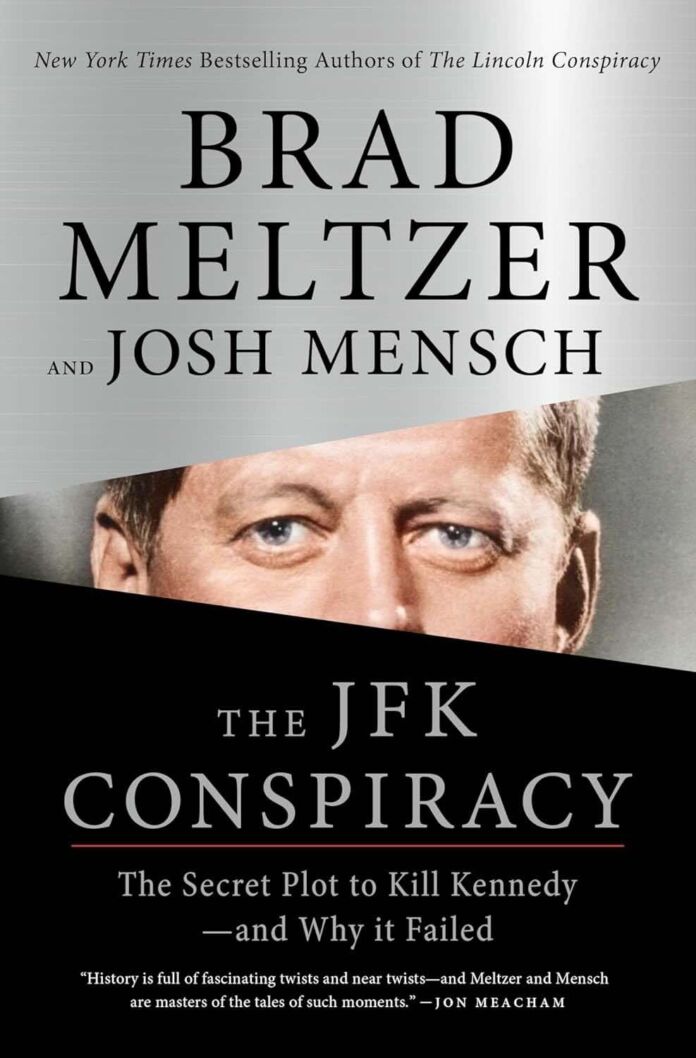In their latest collaboration, Brad Meltzer and Josh Mensch uncover a fascinating piece of American history that could have dramatically altered the course of the nation. Following their successful works The Nazi Conspiracy and The Lincoln Conspiracy, the authors bring their signature investigative style to illuminate a lesser-known threat to JFK’s life – one that occurred even before his presidency began.
Historical Context and Significance
The book opens in Palm Beach, Florida, December 1960, with Richard Pavlick, a disgruntled former postal worker, waiting in his explosives-laden car to assassinate the president-elect. From this gripping introduction, the authors masterfully weave together multiple narratives that explore not just the assassination attempt, but the broader social and political landscape of Cold War America.
Narrative Structure and Style
Meltzer and Mensch employ their proven storytelling technique:
- Multiple timeline narratives that build tension
- Rich historical detail woven seamlessly into the story
- Character-driven scenes that bring historical figures to life
- Clear, accessible prose that maintains momentum
The authors particularly excel at humanizing their subjects while maintaining historical accuracy. Their portrayal of key figures, from JFK and Jackie Kennedy to Secret Service agents and Pavlick himself, feels authentic and three-dimensional.
Research and Documentation
One of the book’s greatest strengths is its meticulous research. The authors draw from:
- Previously classified Secret Service files
- Personal correspondence
- Newspaper archives
- Interviews and oral histories
- Government documents
Key Themes Explored
The book effectively examines several interconnected themes:
- The role of anti-Catholic sentiment in American politics
- The evolution of Presidential security
- The impact of media on political culture
- The relationship between personal prejudice and political violence
- The influence of the Cold War on domestic affairs
Strengths
The authors excel at:
- Creating suspense even when the outcome is known
- Balancing multiple narrative threads
- Providing crucial historical context
- Humanizing historical figures
- Drawing relevant parallels to contemporary issues
Critical Analysis
While generally strong, the book has some minor weaknesses:
- Occasional repetition of certain details
- Some speculative passages about characters’ thoughts and motivations
- A few narrative tangents that could have been trimmed
Historical Accuracy and Context
The authors maintain high standards of historical accuracy while making the story accessible to general readers. They carefully distinguish between documented facts and reasonable speculation, providing extensive notes and sources.
Comparison to Similar Works
The book sits comfortably alongside other works of narrative nonfiction like Erik Larson’s The Devil in the White City or Hampton Sides’ Hellhound on His Trail, though with its own distinct approach to historical storytelling.
Writing Quality
The prose is consistently engaging, with a cinematic quality that helps readers visualize scenes while maintaining historical accuracy. The authors strike an effective balance between scholarly rigor and narrative entertainment.
Impact and Relevance
The book’s exploration of political violence, religious prejudice, and the role of security services remains deeply relevant to contemporary discussions about political polarization and domestic terrorism.
Notable Sections
Particularly compelling segments include:
- The detailed exploration of JFK’s wartime experience
- The examination of anti-Catholic sentiment in American politics
- The portrayal of Jackie Kennedy’s early days as First Lady
- The tense description of Pavlick’s surveillance and arrest
Cultural Significance
The book makes a valuable contribution to our understanding of:
- The Kennedy presidency and its cultural impact
- The evolution of Presidential security
- Religious prejudice in American politics
- The role of law enforcement in preventing political violence
Final Assessment
The JFK Conspiracy succeeds both as a gripping historical narrative and as a thoughtful examination of American political culture. The authors have crafted a work that enlightens while it entertains, making an important contribution to both Kennedy scholarship and popular history.
Recommended for:
- History enthusiasts
- Political science students
- True crime readers
- Kennedy scholars
- General nonfiction readers
Conclusion
Meltzer and Mensch have produced another compelling work of historical investigation that illuminates a crucial moment in American history. While the assassination attempt failed, the story reveals important truths about American society and politics that resonate today. The book serves as both an engaging read and a valuable historical document, reminding us how close we came to losing one of our most significant presidents before he even took office.
The authors’ ability to maintain suspense while providing thorough historical context makes this book a worthy addition to the literature on both the Kennedy era and American political violence. Despite minor flaws, The JFK Conspiracy stands as a significant contribution to our understanding of this pivotal period in American history.





